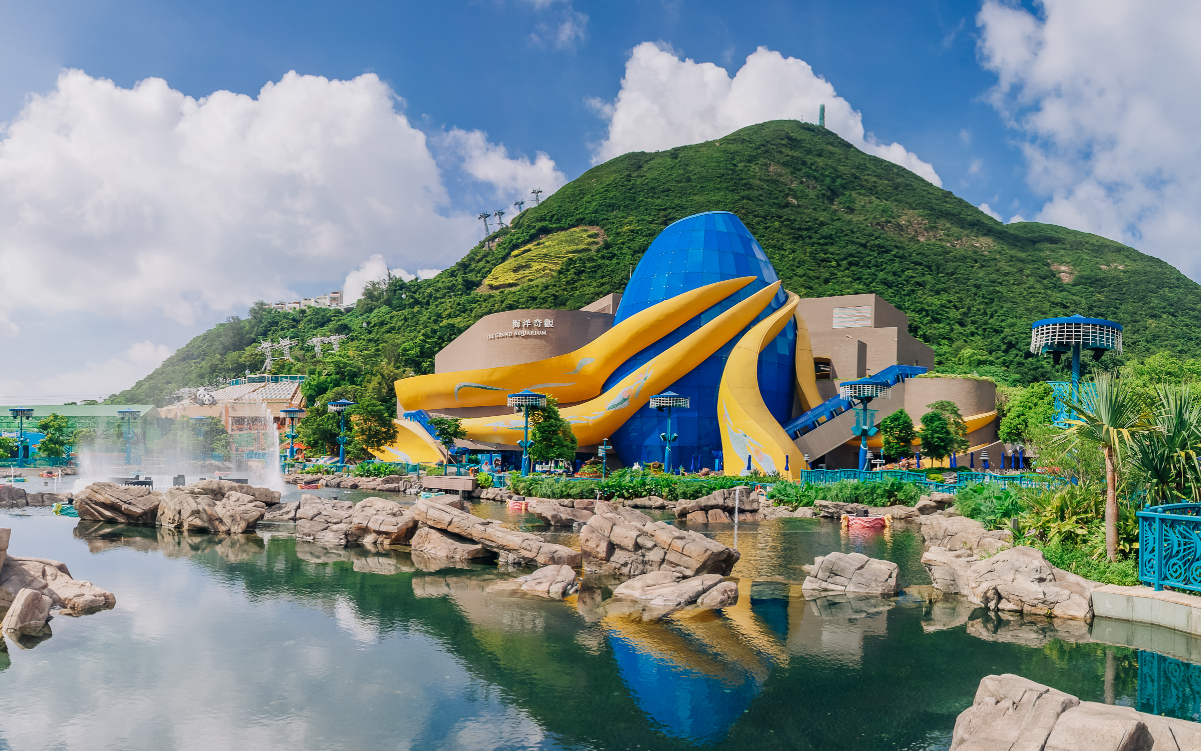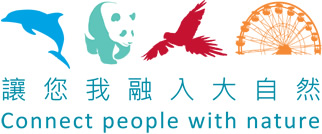오션파크로 떠나는 즐거운 여행에 필요한 모든 것
Ocean Park is pleased to announce the smooth release of a stranded and rehabilitated sea turtle today, together with the Agriculture, Fisheries and Conservation Department (AFCD). The stranded and released sea turtle, named Spark, is now approximately five to eight years old.
Spark was found near northeast waters during an AFCD survey on 29 March 2018. It was trapped in shallow water. Spark’s skin was in poor condition when rescued and its body was covered with many small wounds, coupled with a large deep wound on its left flipper. Its right elbow joint was also swollen due to infections. Spark was then transferred to Ocean Park for detailed examinations and treatment, which revealed a large amount of pebble-like opaque substances in its gastrointestinal tract. Fortunately, the foreign substances were passed out naturally on the next few days and did not pose long-term impact to Spark’s health.
Under the treatment by the Park’s veterinary team and care of the aquarists, it still took around a year for Spark to fully recover. During the rehabilitation process, the team helped the turtle rebuild foraging behaviour to ensure it could re-adjust to life in the sea. Since plastic bag fragments were found inside Spark’s body when rescued, the Park would like to take the chance to remind the public to avoid using disposable plastic items and not to litter in a bid to protect the marine animals.
Michael Boos, Executive Director of Zoological Operations & Conservation of Ocean Park, said, “During the recovery course of around a year, the Park’s veterinary team and Spark’s caretakers helped cleanse and debride its wounds regularly. We also had to remove the infected bone material on its right elbow joint to prevent infections from worsening. Latest computed tomography and X-ray reports showed that newly grown bone material have re-filled the gap. Spark can now swim and dive well, and can feed and forage on its own. We believe it’s a good time to release Spark back to its home. We have installed a satellite transmitter on Spark’s back. The device will monitor its movement and feeding pattern in the next three to six months. The data will contribute to future conservation initiatives and protection of the species.”
Boos continued, “Similar to other previously rescued sea turtles, plastic bag fragments were found in the gastrointestinal track and faeces of Spark. Marine debris such as plastic bags, fishing hooks and fishing lines could cause gastrointestinal blockage if mistakenly ingested and pose serious, long-term health risks to marine animals. Some animals entangled by marine debris such as fishing nets and lines also resulted in death. We encourage everyone to avoid using disposable plastic items, bring their own reusable shopping bags, water bottles and cutleries, as well as take part in activities such as beach cleanups to help protect the ocean.”
Ocean Park has been collaborating with AFCD to care for stranded or confiscated endangered animals on a volunteer basis, including sea turtles. Since 2014, the Park has received 60 rescued turtles, 45 of which were returned to the wild, 11 failed to survive and four remain under the care of Ocean Park. If you come across sea turtles in poor condition, please call 1823 immediately to report their location to AFCD, which will help optimise the window for rescue.
Spark was found near northeast waters during an AFCD survey on 29 March 2018. It was trapped in shallow water. Spark’s skin was in poor condition when rescued and its body was covered with many small wounds, coupled with a large deep wound on its left flipper. Its right elbow joint was also swollen due to infections. Spark was then transferred to Ocean Park for detailed examinations and treatment, which revealed a large amount of pebble-like opaque substances in its gastrointestinal tract. Fortunately, the foreign substances were passed out naturally on the next few days and did not pose long-term impact to Spark’s health.
Under the treatment by the Park’s veterinary team and care of the aquarists, it still took around a year for Spark to fully recover. During the rehabilitation process, the team helped the turtle rebuild foraging behaviour to ensure it could re-adjust to life in the sea. Since plastic bag fragments were found inside Spark’s body when rescued, the Park would like to take the chance to remind the public to avoid using disposable plastic items and not to litter in a bid to protect the marine animals.
Michael Boos, Executive Director of Zoological Operations & Conservation of Ocean Park, said, “During the recovery course of around a year, the Park’s veterinary team and Spark’s caretakers helped cleanse and debride its wounds regularly. We also had to remove the infected bone material on its right elbow joint to prevent infections from worsening. Latest computed tomography and X-ray reports showed that newly grown bone material have re-filled the gap. Spark can now swim and dive well, and can feed and forage on its own. We believe it’s a good time to release Spark back to its home. We have installed a satellite transmitter on Spark’s back. The device will monitor its movement and feeding pattern in the next three to six months. The data will contribute to future conservation initiatives and protection of the species.”
Boos continued, “Similar to other previously rescued sea turtles, plastic bag fragments were found in the gastrointestinal track and faeces of Spark. Marine debris such as plastic bags, fishing hooks and fishing lines could cause gastrointestinal blockage if mistakenly ingested and pose serious, long-term health risks to marine animals. Some animals entangled by marine debris such as fishing nets and lines also resulted in death. We encourage everyone to avoid using disposable plastic items, bring their own reusable shopping bags, water bottles and cutleries, as well as take part in activities such as beach cleanups to help protect the ocean.”
Ocean Park has been collaborating with AFCD to care for stranded or confiscated endangered animals on a volunteer basis, including sea turtles. Since 2014, the Park has received 60 rescued turtles, 45 of which were returned to the wild, 11 failed to survive and four remain under the care of Ocean Park. If you come across sea turtles in poor condition, please call 1823 immediately to report their location to AFCD, which will help optimise the window for rescue.







